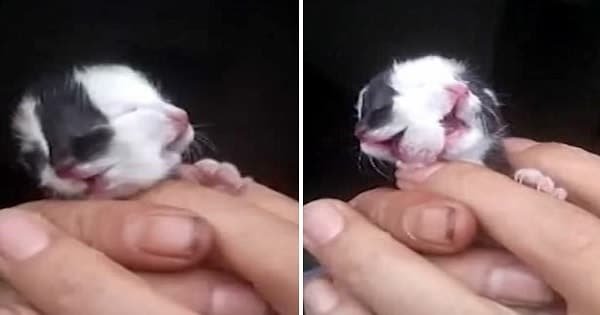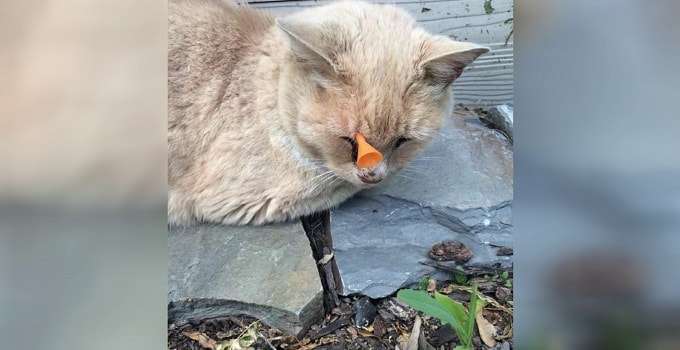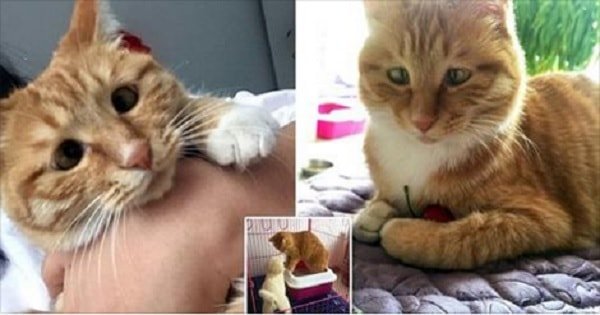UNITED KINGDOM – When Marine Coucoulis discovered that her beloved cat Booba had been found more than four months after it had gone missing, she was naturally delighted.
However, her joy quickly turned to anguish when she was told Booba had been re-homed with another family – despite being the fact the cat was fitted with a microchip which should have allowed Ms. Coucoulis to be traced as the rightful owner.
Ms. Coucoulis is now accusing the RSPCA of failing to make enough effort to establish Booba’s rightful owner before the four-year-old animal was handed to someone else.
The case comes just after a microchipping database told a distraught family that the Data Protection Act prevented them from revealing just who had their missing cat in their possession.
Karen Young, who is 41, and her daughter Carmen, who is 11, were eventually reunited with their Bengal cat Tigger last week after its new keepers read of their plight
Booba went missing more towards the end of March, leaving Ms. Coucoulis, a French-born business analyst, “heartbroken”.
Over the course of the following months, Ms. Coucoulis continued to search for any clues to his whereabouts, until one day she just happened to stumble upon an old RSPCA posting on the Pets Located website, dated May 24, with a photograph of Booba, announcing it had been found.
Delighted, she of course, rang the person who had put up the notice – only to be told the cat had been re-homed nearly three weeks earlier.
Ms. Coucoulis, who is 24, stated: “I was so happy when I read the posting saying that my cat had been found close to where I live and that he was safe and well. I had missed him so much.
“But when I asked when I could come and pick Booba up they told me he had already been given to a new family. How could that happen when he was microchipped? It was awful.”
Ms. Coucoulis was told that Booba had indeed been found, looking hungry and severely ragged, around two months after it had gone missing – just three streets from her home in Cricklewood, north-west London.
The person who found the cat called the RSPCA, who took it to the shelter’s north London clinic in Finchley for treatment, prior to handing it over to Cats Protection, one of the UK’s biggest animal shelters, for re-homing.
Ms. Coucoulis was told that within a few weeks of being found, Booba had been adopted out to new owners, who naturally grew fond of it.
She was absolutely horrified and claims that the RSPCA failed to make any serious attempt to trace her from the microchip details under which she registered Booba.
All of the confusion arose because Booba was registered in France, through a French animal database.
However, Ms. Coucoulis maintains that the RSPCA and Cat Protection should have been able to tell from the first few numbers of Booba’s unique 15-digit microchip registration code, which was true was the case.
She claimed that both organizations completely failed to check with Europetnet, a Europe-wide database which collates details of where pets are registered.
“The RSPCA and Cats Protection said they couldn’t find any contact or ownership details on Booba’s microchip number, but they weren’t doing their job properly,” she stated.
“If they had checked his number with Europetnet they would have seen he was registered in France and been able to find my contact details that way. What is the point of having a pet microchipped if this happens when you move countries with it?”
The matter became even more confusing and frustrating when Cats Protection approached Booba’s new owners on Ms. Coucoulis’s behalf, to see if they would be prepared to return him to her.
However, the family – whose identities could not be revealed to her due to data protection laws – simply refused, saying they had already grown attached to the cat. They even registered it with a new name, which Duke, ‘under its existing microchip’.
Ms. Coucoulis, who moved from Paris to London with her cat 18 months ago, stated: “They say they can’t bear to give him up. But they have had him for only two weeks. I had Booba for four years, from when he was just three months old.
“I miss him so much. How can they say they are now the rightful owners now? It is like stealing him from me.”

The RSPCA took Booba to the charity’s north London clinic in Finchley for treatment, before handing it over to Cats Protection for re-homing
The RSPCA admitted to Ms. Coucoulis that there might have been an element of “human error” in its search for Booba’s owner and has agreed to “look into this further”.
However, the shelter has stated that its staff did check two different databases, including one which is a member of Europetnet, and were told there was no registered owner.
An RSPCA spokesman stated: “This is a very upsetting situation and we are extremely sympathetic.
“We saved this cat’s life, nursed him back to health, and during the seven weeks he was cared for in our hospital we actively searched for an owner by putting up posters, advertising him online and checking his microchip.”
Cats Protection, which each year reunites around 3,000 lost cats with their original owners, explained that it had no powers to force Booba’s new keepers to give him up.
A spokesman for the shelter stated: “We checked a number of microchip databases without success, so by the time Marine got in touch with us on July 25 Booba had been adopted.
“Unfortunately, we have no powers to compel the new owners to return Booba to Marine. We have been in contact with them to make them aware of the situation and will continue to offer to work with both parties in the hope of finding a solution.”
Both organizations are urging pet owners to make sure their animals’ microchip details are kept up to date and to register them with a database if they have moved here from abroad.











